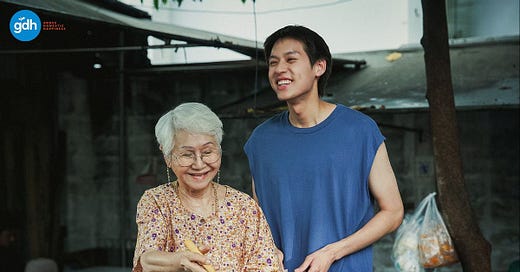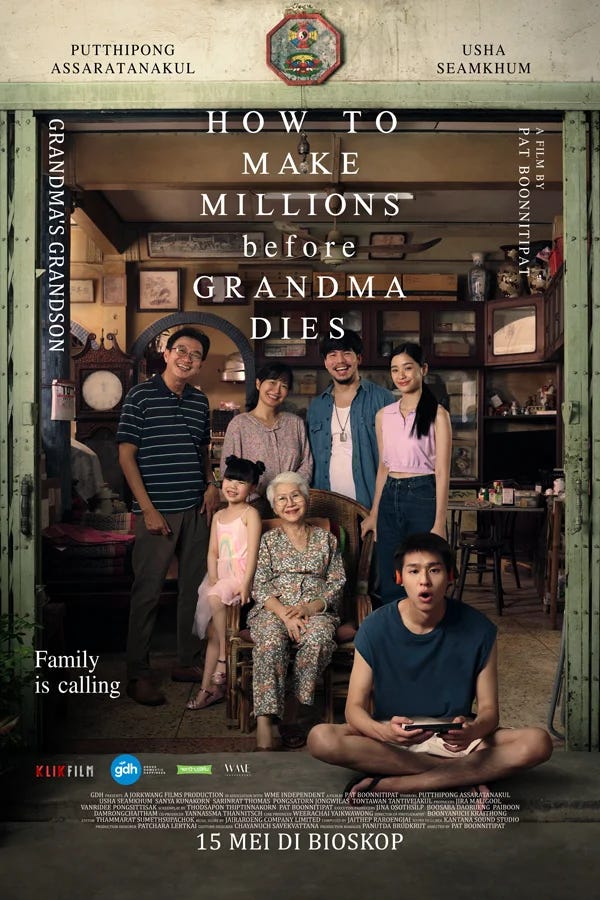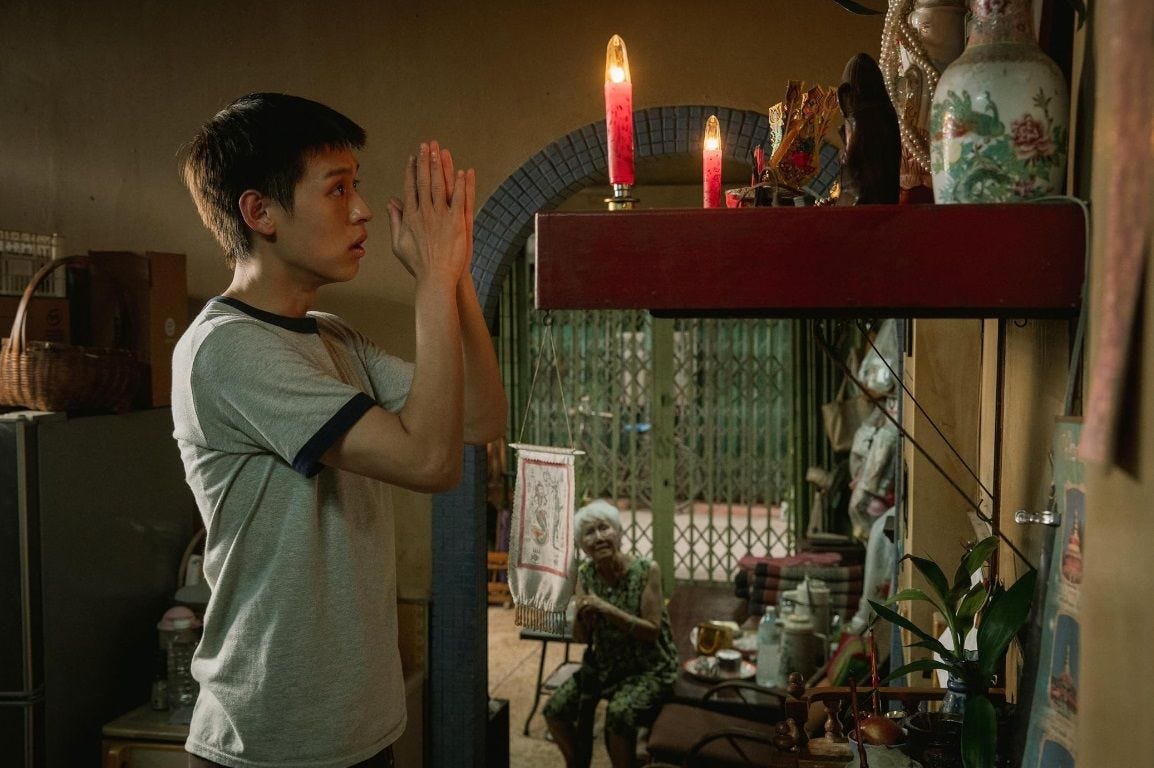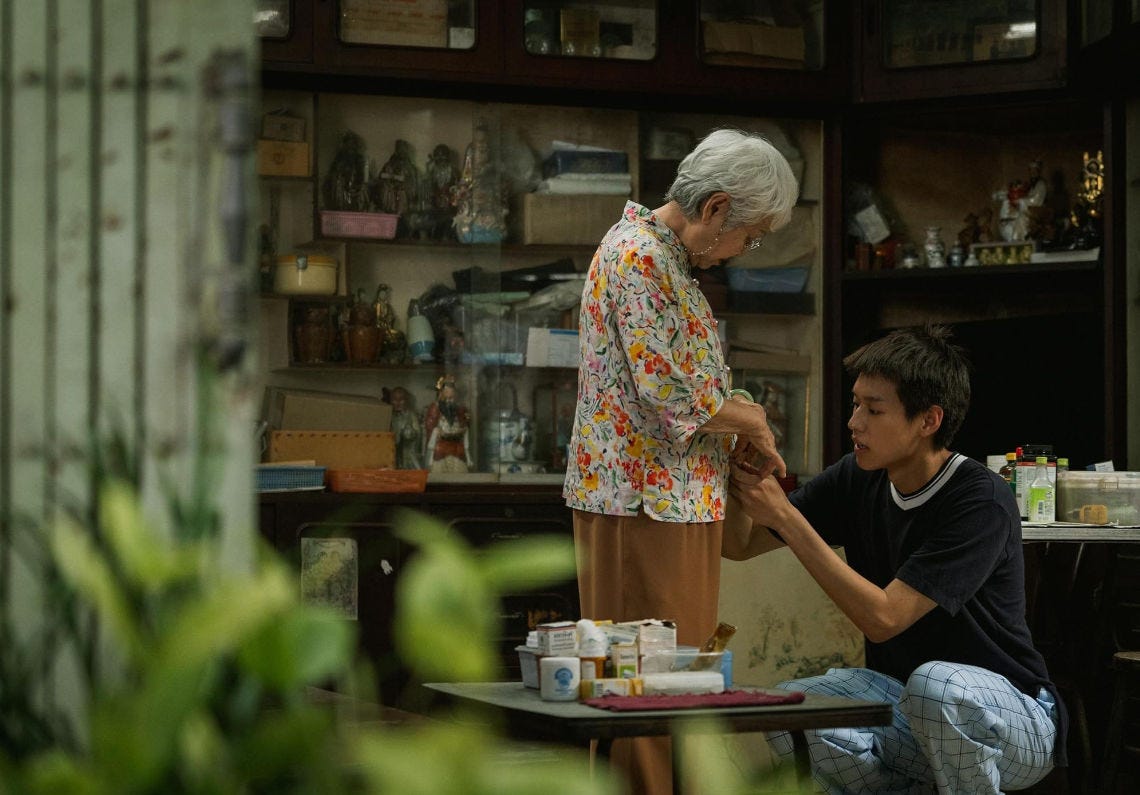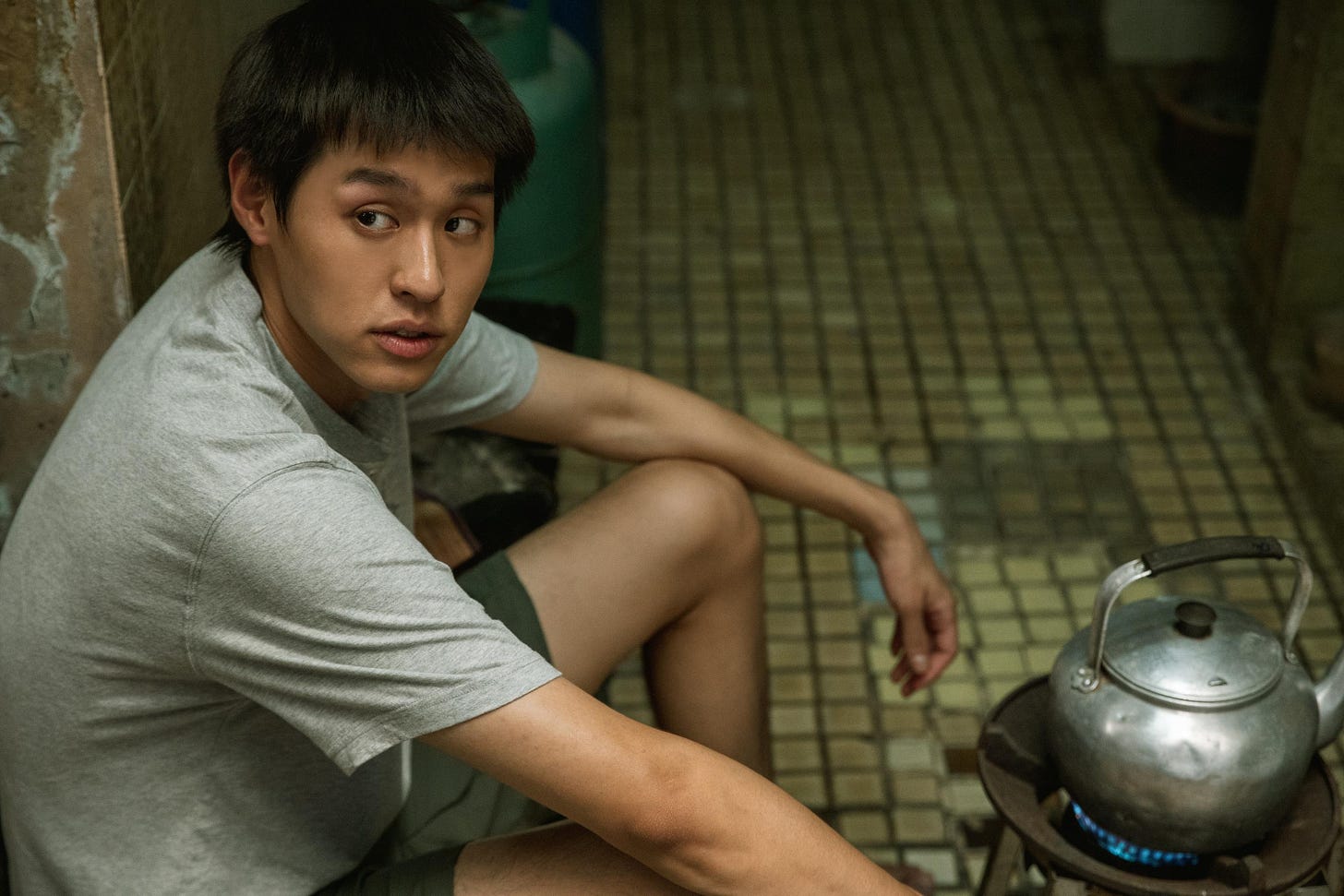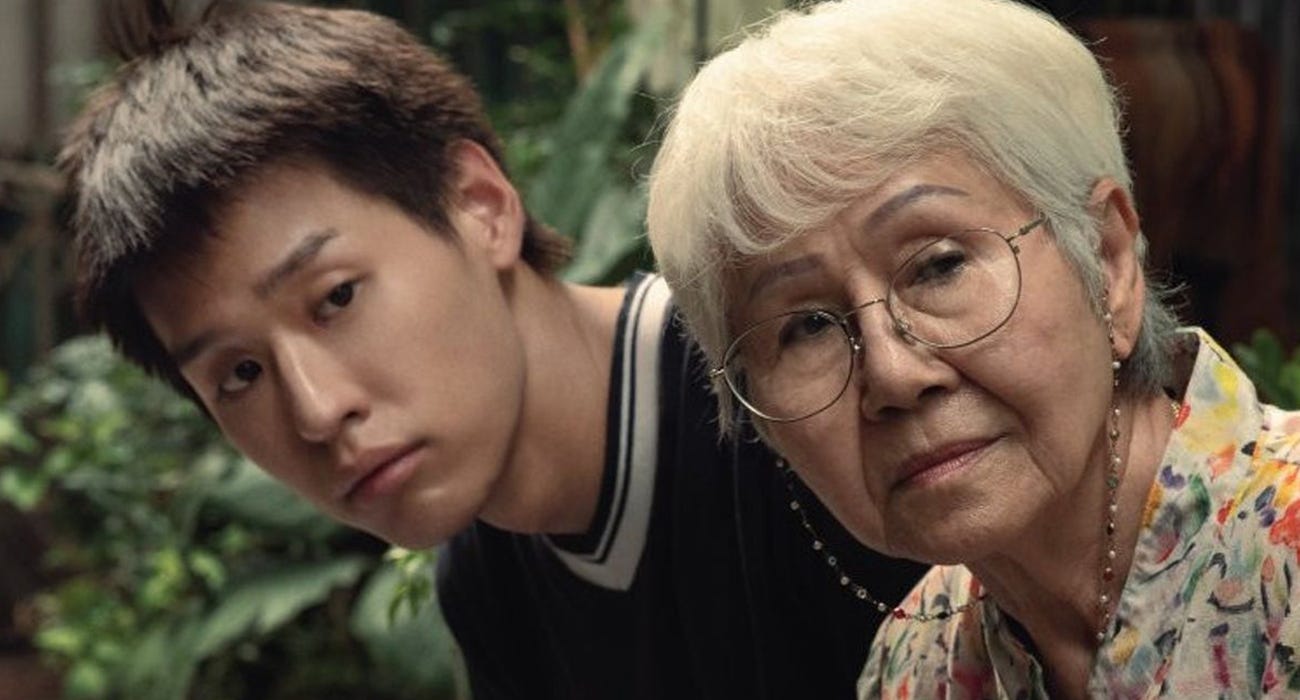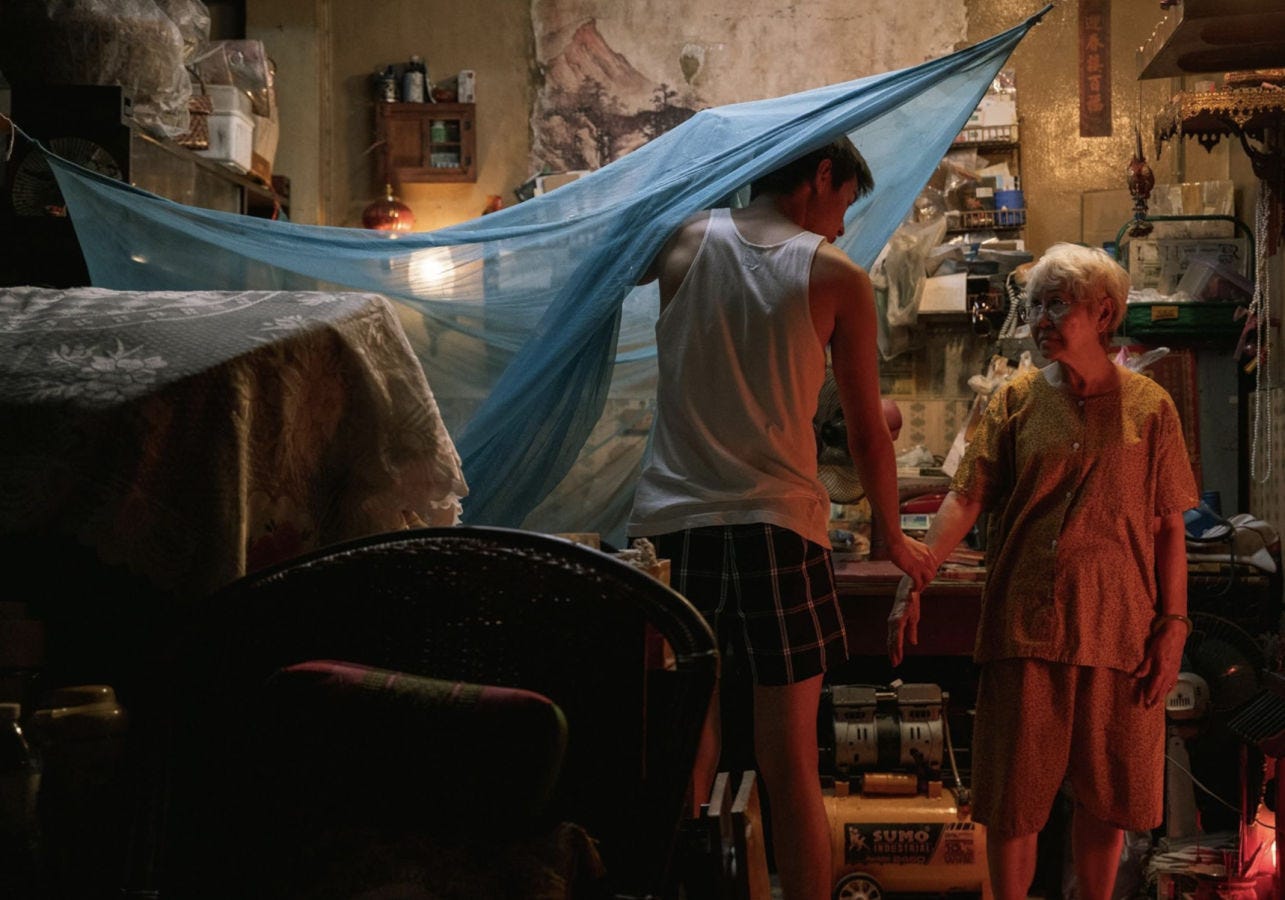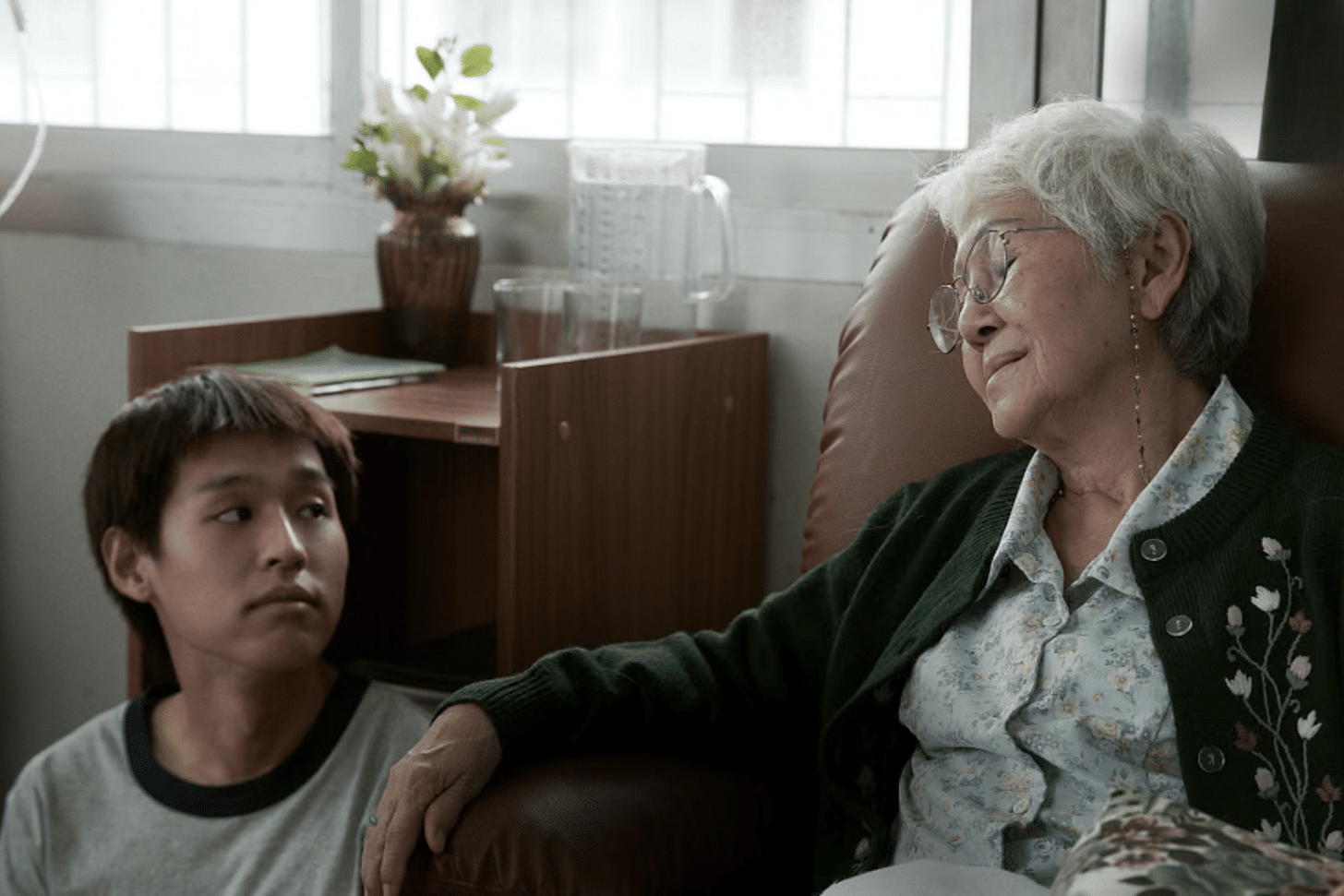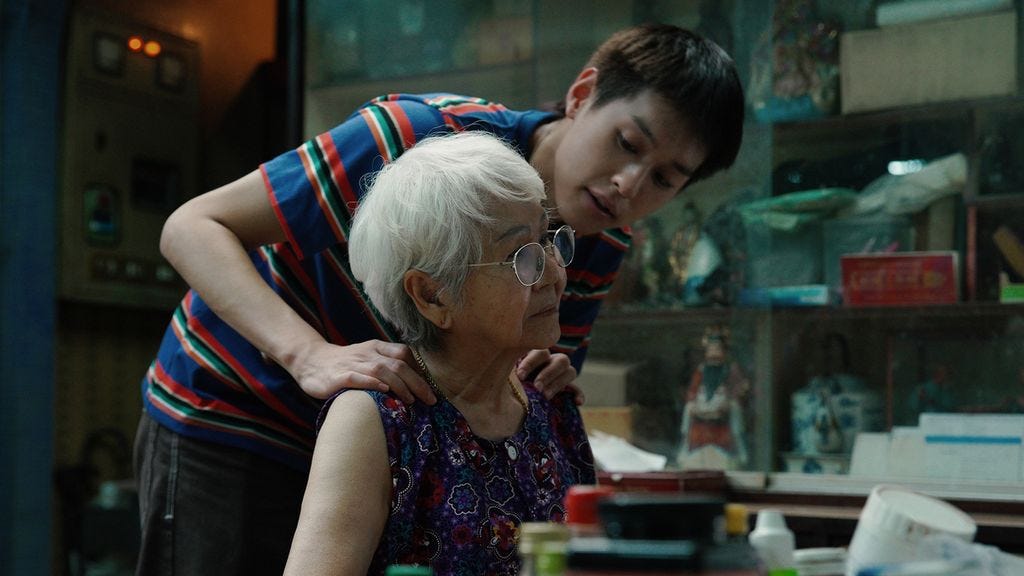the economy is bad. you’re born into an ordinary family. what’s the fastest way to get rich? secure your inheritance from a grandparent. that’s what M had in mind when his live streaming career wasn’t taking off, especially after having seen one of his cousin sisters inherit her grandpa’s massive house after his passing.
the premise is set. the movie begins.
1. this is not a movie. this is film.
…is what i was thinking the entire time watching this. there are no big plot points. no larger-than-life characters. no production sets. just an ordinary family with very familiar problems.
do not expect a fast-paced drama. or big climaxes where you’re guaranteed to cry. it’s slow. it’s quiet. it’s unassuming. it’s not a Hollywood movie. it’s a film trying to tell a story we all know.
i love that the story started at the graveyard. you’re watching a movie with a grandma and a grandson. the filmmakers didn’t shy away from the topic of death at all. give it to them from the start, they said. let them have a piece of grandma’s mind.
2. exquisite shots with exquisite compositions.
before i dive into the story, there are a couple of things i want to highlight. the first is this film’s compositions. it’s insane. just take a look at this shot:
you can see M, the altar, and grandma in the background. but she’s not in the background. the amazing thing about this film is that 90% of the film is in nearly perfect focus. the people who made this film wanted their audience to look at everything. but it’s not overwhelming. it feels natural, like how our eyes would capture everything in a single image, but it also feels very intentional and artistic, pulling in all the elements in a single shot.
what a flex.
i can’t find a screenshot of it, but my favourite shot from the movie is the one where grandma plucks a pomegranate for M. at the beginning of this shot, M and grandma are both in the back on the right, talking. a single pomegranate fruit hangs in the top left corner of the shot. eventually, grandma walks closer to the camera to pluck the fruit. it was such a beautiful shot because we knew from the beginning that these fruits were precious to grandma, and now we see her plucking one for the first time, giving it to M.
i can’t explain it, but it completely hit me like a train.
3. sound and silence.
i love movies with intense silences, especially during conversations. it draws the audience’s attention into such an intense focus. you don’t hear anybody breathe or laugh or cry because everyone is so focused on the conversation or whatever’s happening on screen.
this movie had many of those. again, wonderfully executed.
also. the music is heart-wrenching. every time the score played, i would cry. sad piano is the way to my tear ducts, and this movie utilised that cliche so well i nearly hated how good it was.
4. actors who stop acting.
there were no actors in this movie. i think i felt the acting maybe only 5-10% of the time. the rest of the time, i really felt like i was watching a real family interacting. overlapping conversations. ignorance. bad haircuts. the stylists did a wonderful job dressing everyone. and the actors did amazing with their non-acting.
i Googled who Billkin was after the movie because his name was on the OST, not realising that he was the grandchild. he looked nothing like his celebrity photos, and i’m all the more thankful for it.
actors aside, the “set” was also very very very dressed down and real. i haven’t seen a Thai movie in ages, but a lot of things about this movie really did not scream MOVIE to me. it just felt like i was watching someone’s life play on screen. the houses are old, the streets are sometimes broken, the trains are loud, the sceneries are beautiful.
5. from the perspective of ________
as every good film does, this story presented us with many perspectives, each true and heartbreaking and despicable and painful and honest.
from the perspective of M, the grandchild who often did not want to show up for grandma, this was his first time seeing grandma’s life unfold. having almost never been to the Sunday lunches, this scene etched into my brain like a tattoo. for the first time, M saw his grandma anticipating her family come visit her. he asked why she was dressed up so nice. he teased her. he watched her children bicker in front of her, as he sat on the stairs. for the first time in his life, he saw his grandma.
from physical details like: waking up at 5am to sell congee, not eating beef, knowing her favourite fried fish stall, to details he never thought he would have to see like: giving grandma a sponge bath, hearing her talk in her nightmares, etc.
you never see any of this as a child.
you need to be an adult to see it. and seeing it was M’s way of growing. changing.
then there’s grandma’s perspective.
from the perspective of grandma, she was a single person left standing alone.
expecting that every family member always needs something from her. missing her parents. holding onto a pair of shoes that did not fit her because her son bought it for her. telling her grandson it’s better if her son doesn’t come, because that means he’s doing well. sharing with her friend that she too, now has stage 4 cancer, just like her friend. seeing her brother lovingly then being rejected for wanting to borrow money.
waiting for her family to visit.
always waiting.
this made me think about how my parents will grow old, and that i wasn’t afraid for their eventual passing, but i was afraid of how they would spend the time before that happened. will they be lonely? will they be chucked aside by their children? they spent half their lives raising us, but we won’t spent our half caring for them.
(i am tearing up as i’m typing this!!!)
6. the memories we have of them, and theirs of us.
thinking about this is probably what made me cry the most.
in the first half of the film, grandma would repeatedly bring up memories from M’s childhood, and he would always reply: i don’t remember, with a smile on his face. he was amused, mostly, of the things his grandma remembered, but those memories didn’t matter to him because he didn’t have them.
as we move into the second half of the film, i realise that grandma’s memories of M is her love built up in so many different scenarios for him and her children. giving up eating beef forever even though it was her favourite, because she prayed to Guan Yin for her eldest son to be healthy. always looking out for her other son even though he never looked out for her in the same capacity. planting a pomegranate tree for her grandchild. writing prayers to cover her entire family even when her family didn’t do the same for her. opening a bank account for her grandchild and making the walk to the bank every month to deposit into that account for decades and decades to come.
every. little. thing.
M will only remember his grandma as old, frail, and someone who needs to be cared for. but grandma will always remember M as someone who she will always look out for, will always love, and will never grow up, in her eyes. he will always be that little child who couldn’t stop playing games.
(how am i crying again writing this)
i will never get to know my parents like they did with me. they saw me grow up from a tiny nothing to who i am today. what they know of me is very different from what i know of them, and i can never, ever change that.
their love for me, as their child, will always exceed mine for them.
not because i can never out-love them, but because they’ve always been here, even before i was a baby, even before the idea of conceiving me was real, even before their marriage, they were children first, growing up first, with their parents and their grandparents first.
it breaks me, because it shows me that i can never love them as much as they have ever ever ever loved me.
and that makes me cry, so so so much.
it’s 1:41AM as i’m ending this very messy, very jumbled up review that i scrambled together right after the movie tonight, and i just sobbed for a good 30 seconds just thinking of how big my parents’ love are for me.
and how i can never top that. (i don’t want to, i don’t need to.)
it’s wonderful, isn’t it? this life.

